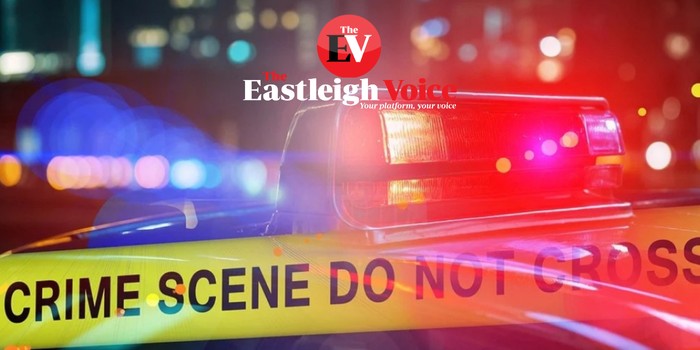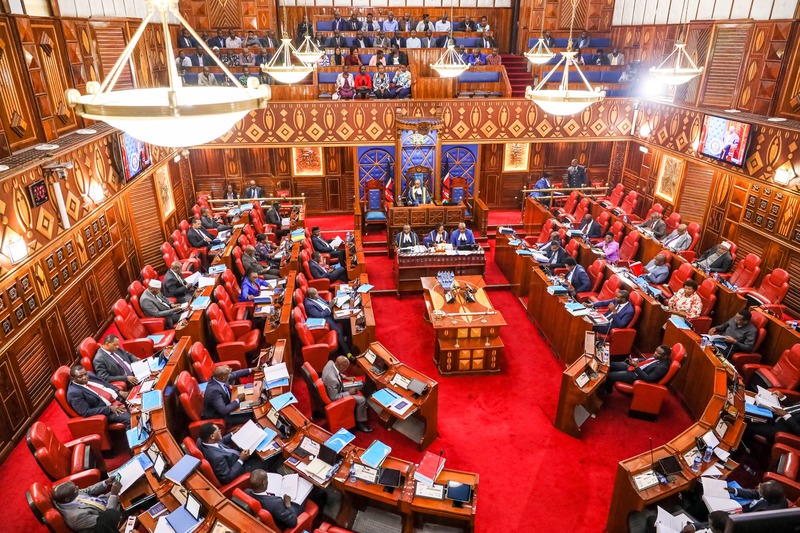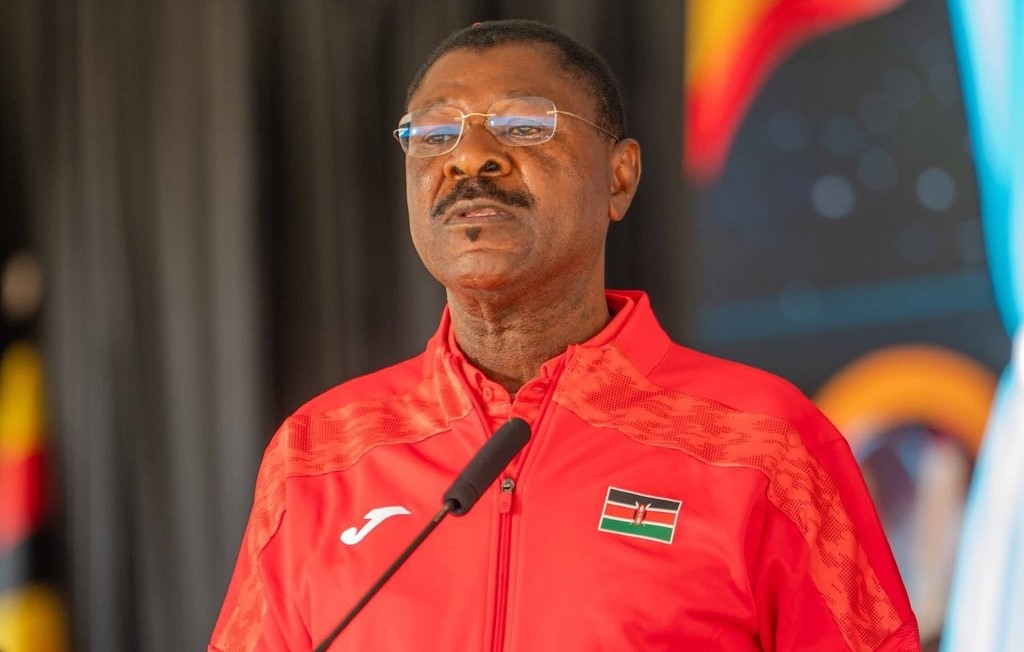Kenya faces crisis as unrest escalates and unimplemented reforms haunt calls for dialogue
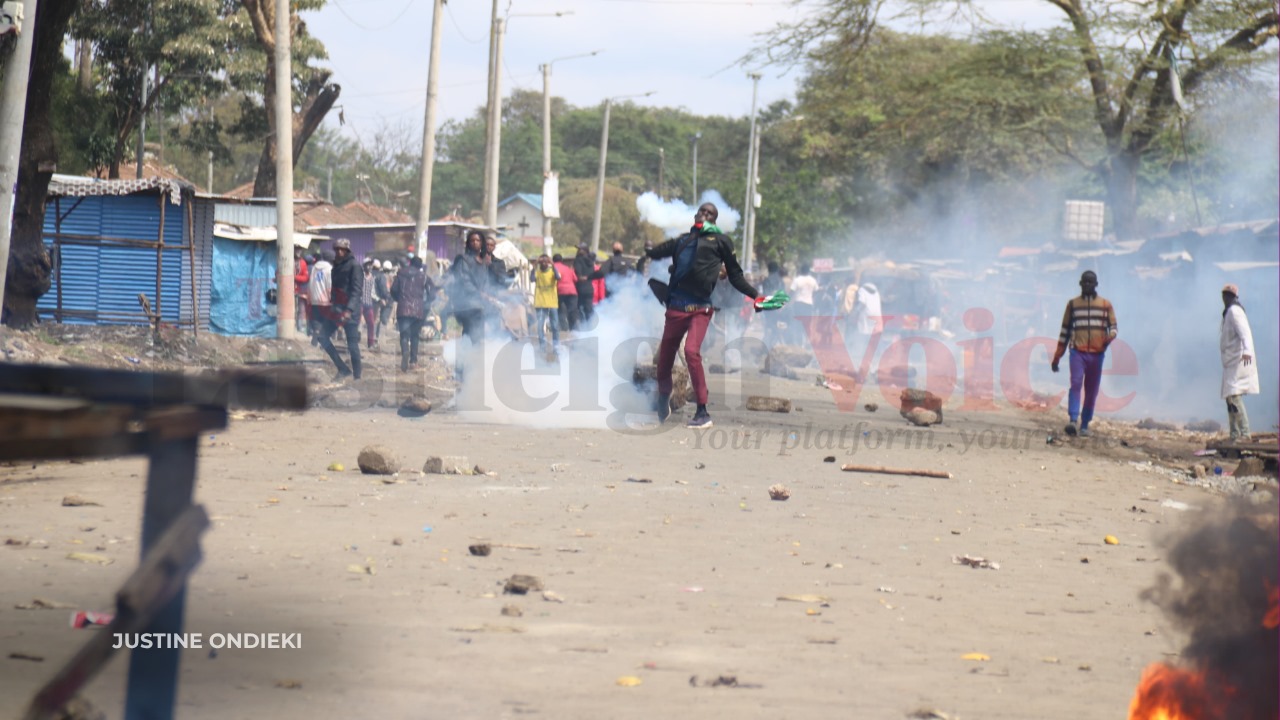
This week, the wave of violence took a tribal turn when some leaders claimed that the violence is domiciled in Central Kenya, where alleged hired thugs looted and burned businesses.
Escalating political tensions and a surge of violence during recent protests have pushed Kenya to the brink, exposing long-standing grievances that have remained unresolved for years. In the absence of meaningful reforms, these underlying issues continue to fuel a dangerous cycle of unrest and instability.
As the state calls for dialogue to ease rising tensions, many are questioning what form it will take—and why recommendations from previous dialogues and commissions, which could have prevented the current crisis, remain largely unimplemented.
More To Read
- High Commission issues advisory to Kenyans in Tanzania amid December 9 protest fears
- Kenya, UK celebrate success of Sh3.6 billion REINVENT security programme after seven years
- UN Rights Chief raises alarm over abductions, enforced disappearances in Uganda ahead of elections
- Wajir MCAs demand answers over rising abductions after two men vanish
- ICC ends 13-year probe into Kenya’s post-election violence as two fugitives remain at large
- Civil society raises alarm over 2027 election readiness after chaotic by‑elections
This includes the recent memorandum of understanding between the ruling Kenya Kwanza administration and the ODM party, which aims, among other things, to address key grievances raised by Gen Zs.
In the 10-point agreement, the state committed to upholding the right to peaceful assembly and compensating victims of police brutality—yet these promises remain unfulfilled, as protest-related deaths continue to rise.
The leaders also urged the National Police Service (NPS) to adopt a more tactful approach when handling demonstrations to prevent fatalities and condemned instances of abductions linked to law enforcement agencies, but the situation remains dire.
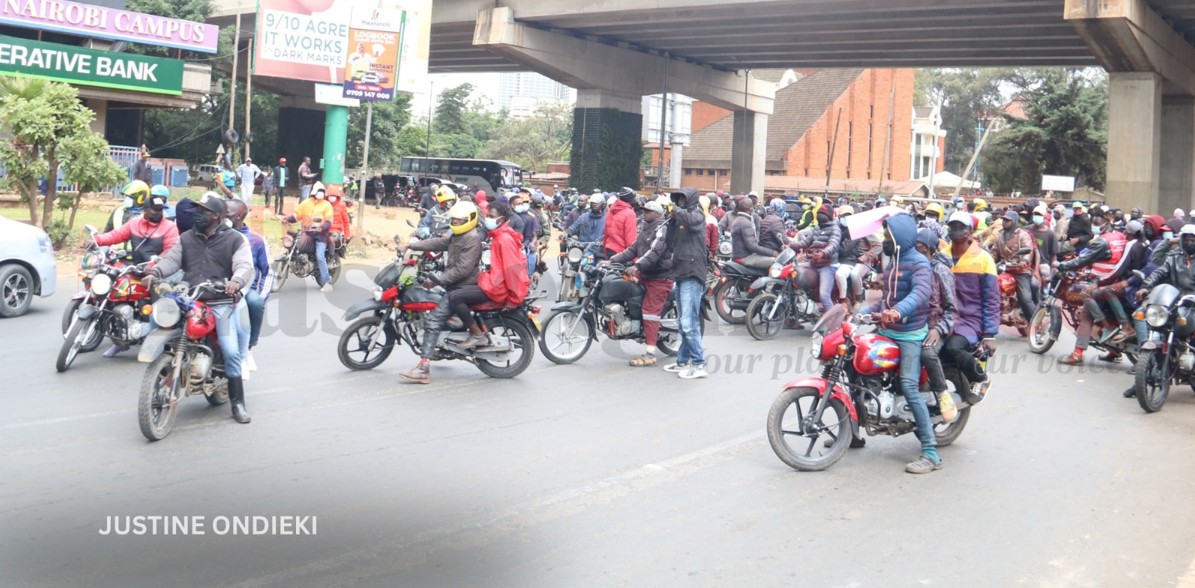 Goons on motorbikes clash with protesters in Nairobi on June 17, 2025. (Photo: File/Justine Ondieki)
Goons on motorbikes clash with protesters in Nairobi on June 17, 2025. (Photo: File/Justine Ondieki)
Police reforms
Other reports that could have helped prevent the current stalemate include the Justice (Rtd) David Maraga-led Commission on Police and Prisons Reforms, which followed several earlier efforts such as the Ransley Report. However, public complaints against the police have hit record highs, fueling mistrust and undermining the progress made through years of community policing.
The Truth, Justice, and Reconciliation Commission (TJRC) report warned that unresolved grievances, impunity, and failure to address root causes risked pushing Kenya toward deeper division and potential state collapse and called for comprehensive reforms to heal the nation and build lasting peace.
On its part, the Waki Commission (2008) identified political leaders and groups inciting and benefiting from the violence, exposing weaknesses in Kenya's governance and justice systems.
It recommended the establishment of a special tribunal to hold perpetrators accountable, an unheeded call that some analysts link to continued cycles of unrest.
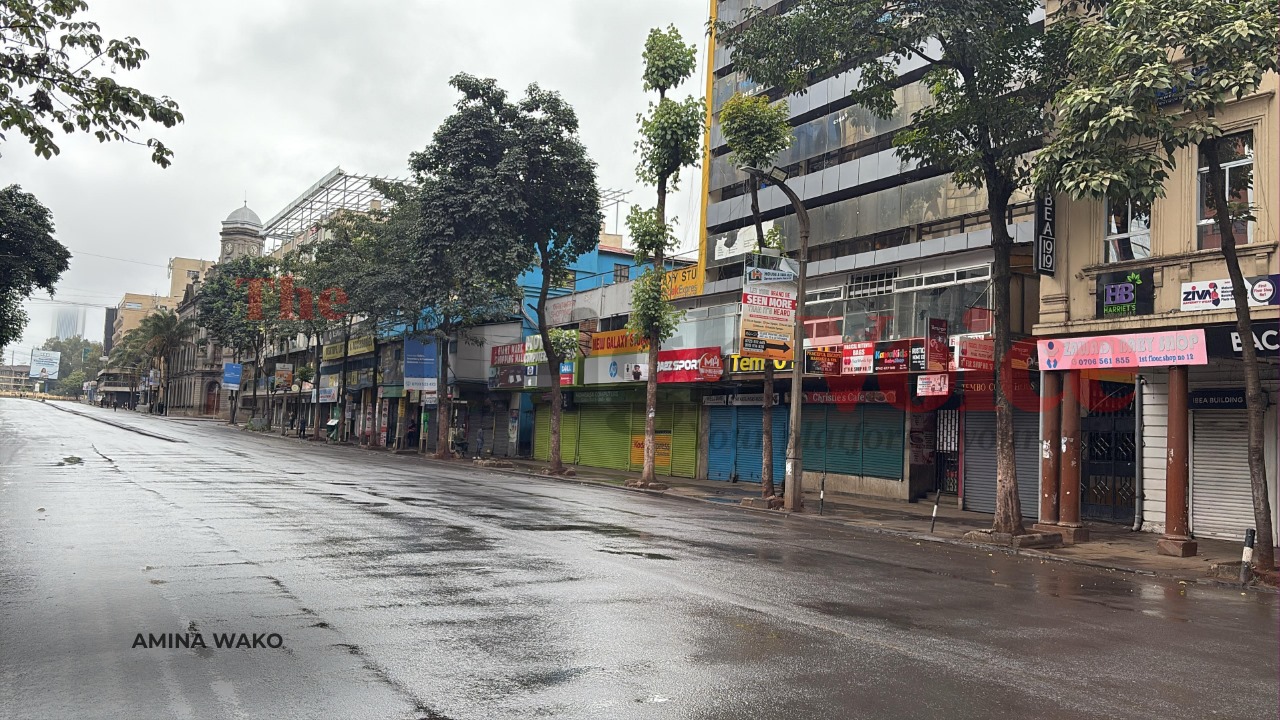 An empty Moi Avenue in Nairobi CBD on July 7, 2025 amid Saba Saba protests fears. (Photo: Amina Wako)
An empty Moi Avenue in Nairobi CBD on July 7, 2025 amid Saba Saba protests fears. (Photo: Amina Wako)
Post-election violence
The Kriegler report on 2007 post-election violence highlighted how a lack of transparent institutions deepens mistrust among communities and advocated for reforms to safeguard institutions' integrity to prevent future breakdowns.
The Njonjo Commission on post-election violence (2018) noted that failure to fully implement recommendations from previous reports kept tensions alive, warning that recurring violence remains a critical threat to national cohesion.
Other Topics To Read
- National
- protests
- Police reforms
- Abductions
- Post election violence
- saba saba
- Gen Z
- NADCO
- National Taskforce on Police Reforms
- Kenya Kwanza administration
- hired goons
- Waki Commission
- BBI
- historical injustice
- political tensions
- Kenya faces crisis as unrest escalates and unimplemented reforms haunt calls for dialogue
- Headlines
Its findings again reiterated that the core issues, like lack of accountability, political impunity, and ethnic polarization, remain unresolved, fueling ongoing tensions and social unrest.
BBI
The Building Bridges Initiative (BBI) also stressed that recurring violence in the country stems from institutional failures as well as unresolved historical injustices such as ethnic marginalization, land injustices, and lack of equitable development.
The report warned that if left unaddressed, these issues risk plunging the country into repeated cycles of violence and institutional breakdown, and warned that reforms need not be viewed just as political preferences, but as urgent national survival measures.
At the same time, on its part, the National Dialogue Committee (NADCO) report again pointed out the same issues highlighted in past reports, warning that they are not just governance issues, but breaking points that could ignite instability or worse if left unchecked.
"This process was never just about elite consensus; it was about national survival. We must not treat these recommendations as political currency. They are guardrails against collapse," former vice president Kalonzo Musyoka said at the time.
 Police fire tear gas to disperse protesters chanting "Ruto must go" at the Twelfth Street roundabout in Eastleigh, Nairobi, during demonstrations on June 25, 2024. (Photo: File)
Police fire tear gas to disperse protesters chanting "Ruto must go" at the Twelfth Street roundabout in Eastleigh, Nairobi, during demonstrations on June 25, 2024. (Photo: File)
Diminishing public trust
While calls for dialogue are due and highly welcome, the shape they will take and who will be involved remains a major point of contention as Gen Zs have persistently vowed to be leaderless, while public trust in the state has diminished, meaning those called to represent the state must be acceptable to the parties invited to dialogue.
Former Makueni Governor Kivutha Kibwana on Monday said there has to be a solution to the current standoff between Gen Zs and the state and an alternative way to deal with the current situation to protect the country from collapse.
"In terms of what Raila said today, this is a story of reforming the police that has happened a long time through the BBI, NADCO report, Kriegler report, all those, but I think first of all, you can't have dialogue when you are killing the youth, you have to stop doing that so that even them they can reflect, say what they want to happen and who is going to be involved in it. How different will it be from BBI, from NADCO, from when the rich have a dialogue with themselves?" It is something that will be unescapable at the end," the former governor said on Citizen TV.
He noted that the youth might first need to engage in internal discussions among themselves, but only after being assured that the ongoing brutality has come to an end. He said such assurance would allow them to begin asking important questions, such as whether they could trust the religious sector, professionals, or even international actors. Ultimately, he emphasised, dialogue would be unavoidable, warning that without it, the country risked falling apart.
Systemic issues
Odinga's call for dialogue first acknowledged that the GenZs' grievances stem from systemic issues that have long been swept under the carpet, urging the need for addressing transparency, accountability, and impunity with regard to corruption and ensuring that leaders are held accountable for their actions.
"The question we have to ask ourselves is: where do we go from here? Do we embrace chaos or a coming together of minds and country?.... I propose an inclusive intergenerational national conclave to hear our people across all divides and come up with irreducible reforms and changes necessary to take the country forward," he said and proposed that the findings of the conclave be subjected to a national referendum.
Earlier, Deputy President Prof Kithure Kindiki had also called for dialogue, warning that the current state of chaos cannot take the country forward.
"Our countrymen, I'm asking you that we find ways to talk and dialogue, we cannot build the country through chaos. I plead with you, my fellow countrymen, we cannot take our country forward through chaos and incitement. We must learn to solve our problems through consultations and peaceful ways. Every Kenyan is free to express themselves and to raise objections, but let's do it peacefully. There is nothing more precious than peace and stability of a country," DP Kindiki beseeched as he wrapped up his week-long engagements at the Coast.
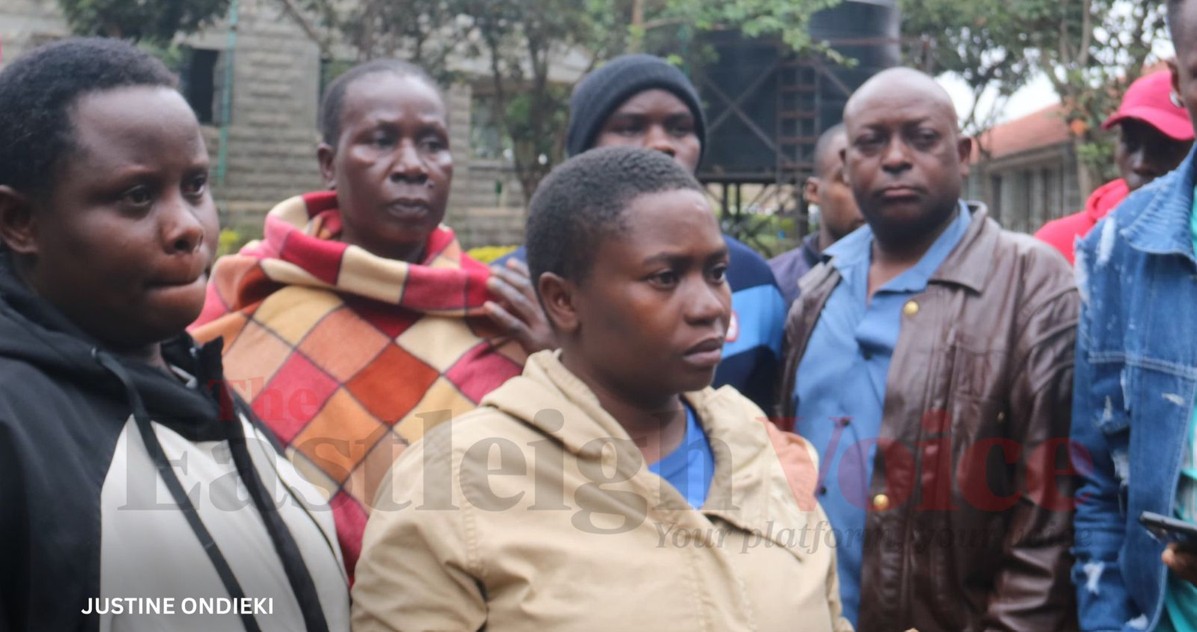 Family members of Elvis Musavi, who was killed in Kangemi during the Saba Saba Day protests, gather at City Mortuary on July 8, 2025. (Photo: Justine Ondieki)
Family members of Elvis Musavi, who was killed in Kangemi during the Saba Saba Day protests, gather at City Mortuary on July 8, 2025. (Photo: Justine Ondieki)
Goons in Central Kenya
This week, the wave of violence took a tribal turn when some leaders claimed that the violence is domiciled in Central Kenya, where alleged hired thugs looted and burned businesses.
"One of the negative things is this introduction of goons, although I still want to call them alternative youth because they are misdirected youth who are being told you can go there, destroy property, do all those things so that it appears as if it is the demonstrator who are doing this and there's a consequence because even businesses begin to say that this is costing us a lot, it shouldn't happen and all that kind of stuff. This cocktail of response from the government does not augur well for our country," the former Makueni governor said.
Leaders from the region have urged locals to stay calm, not to fall for the weaponisation of violence towards them, and instead allow the president to complete the remaining period of his term, after which they can decide who leads the country next in 2027.
Professor Peter Kagwanja, however, said the state must not allow the elections to be postponed beyond 2027 as that would be a betrayal of democracy.
Top Stories Today
